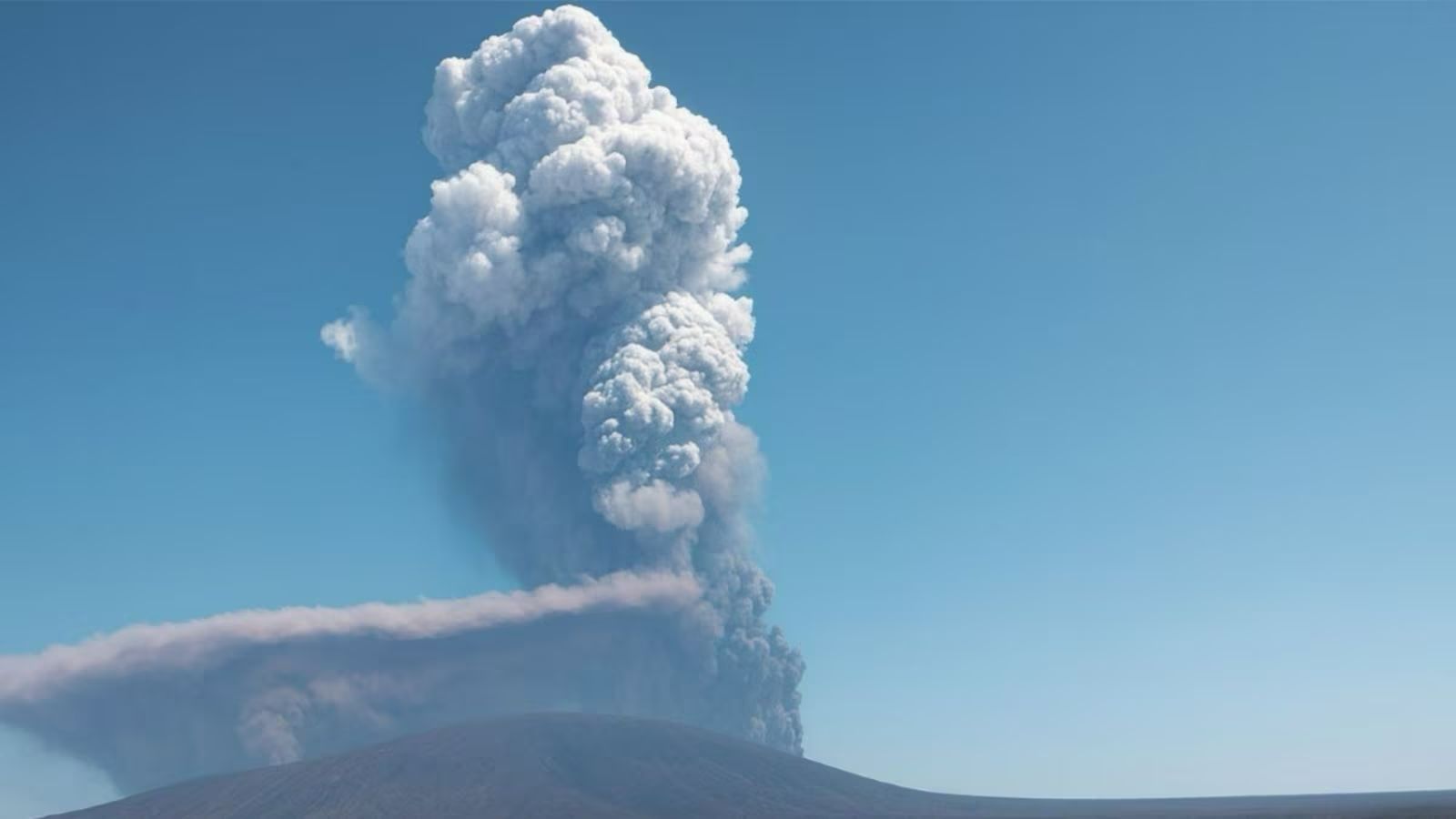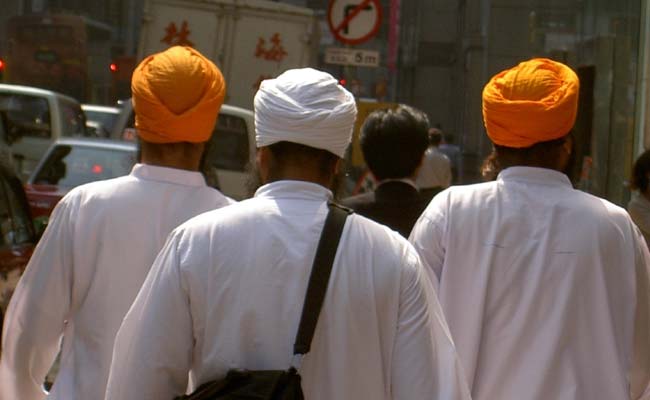Flights Disrupted Across India as Ash From Ethiopia’s Rare Volcano Eruption Reaches Skies Above Multiple States

Nov 25, 2025 | New Delhi Massive high-altitude ash plume reduces visibility and forces airlines to cancel or reroute flights A rare volcanic eruption in Ethiopia has sent a huge cloud of ash sweeping across parts of India, causing major travel disruptions and darkening skies over several cities on Monday night. The Hayli Gubbi volcano, which erupted for the first time in nearly 12,000 years, released a plume that travelled at remarkable speeds of nearly 100 to 120 km per hour at altitudes above 10 kilometres. As the plume drifted across countries, it eventually crossed into India around 6:30 pm, moving swiftly over Rajasthan, Gujarat, Maharashtra, Delhi-NCR and Punjab before continuing its journey eastward. Although the ash remained at high altitudes, it caused enough disturbance to disrupt air traffic. Visibility dipped over many regions, prompting airlines to cancel, divert or delay flights through the night. IndiGo cancelled several flights, while Akasa Air suspended services to international destinations including Jeddah, Kuwait and Abu Dhabi for November 24 and 25. More disruptions followed as aviation authorities issued urgent advisories. India's Directorate General of Civil Aviation released an ASHTAM — a volcanic ash alert — warning airlines about dangerous flying conditions and urging them to avoid the affected altitude zones. Because the ash cloud was moving rapidly, international carriers rerouted flights through neighbouring airspace for safety. However, Indian airlines faced limitations since they could not use certain routes through Pakistan, resulting in more delays and cancellations. The India Meteorological Department attempted to calm concerns, explaining that because the plume was located roughly between 10 and 15 kilometres above ground, its impact at the surface level would likely be minimal. The IMD noted that while the sky might appear hazy and temperatures could stay slightly higher at night, major pollution spikes from the volcanic ash were not expected at ground level. Still, experts cautioned that the arrival of any ash could worsen air quality in Delhi and nearby regions, which were already struggling under ‘very poor’ to ‘severe’ pollution levels. On Monday evening, Delhi’s AQI was recorded at 382, with Ghaziabad and Noida also touching dangerously high numbers even before the ash drifted in. Some environmental analysts warned that the ash could temporarily push pollution levels slightly higher, especially in areas already suffering from heavy smog. The plume itself contained a mix of volcanic ash, sulphur dioxide and tiny particles of rock and glass. These materials can darken skies, reduce visibility and pose serious risks to aircraft engines, making flight operations particularly challenging. In response, airports across affected regions were placed on alert. The DGCA instructed airport teams to be ready for immediate inspections of runways and taxiways if any ashfall occurred. If contamination was detected, operations would be paused to prevent accidents. The Hayli Gubbi eruption, though brief, was powerful enough to send ash as high as 14 kilometres into the sky. While the eruption has now stopped, the massive plume continues to drift, carrying with it the potential to affect more regions as it thins slowly over time. Flights Disrupted Across India as Ash From Ethiopia’s Rare Volcano Eruption Reaches Skies Above Multiple States A rare volcanic eruption in Ethiopia has sent a massive ash cloud drifting across India, creating dramatic skies and major travel disruptions. The Hayli Gubbi volcano, which erupted after nearly 12,000 years of silence, released a fast-moving plume that crossed Rajasthan, Gujarat, Maharashtra, Delhi-NCR and Punjab in just a few hours. The ash hovered at high altitudes, but it was enough to affect visibility and force airlines to cancel or divert several flights through Monday night. Authorities issued an urgent volcanic ash alert, cautioning pilots about dangerous flying conditions. International routes shifted, delays piled up and airports prepared for emergency inspections in case ash settled on runways. Meanwhile, the IMD reassured that surface-level pollution impact would remain low, though the skies could stay hazy and temperatures slightly higher at night. With Delhi and nearby cities already battling poor air quality, experts warned that even a small addition of volcanic particles could make the situation heavier. A rare eruption on another continent quite literally changed the sky over India for a night, reminding us how connected our world truly is.




